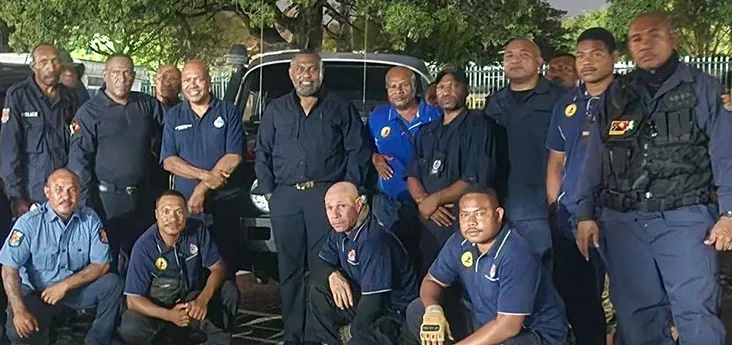The Papua New Guinea (PNG) government has recently launched a restructuring of its Reserve Constabulary system, aiming to improve community policing effectiveness and strengthen public safety. Police Minister Hon. Peter Tsiamalili Jr, MP, reaffirmed the importance of this force in advancing grassroots security efforts during his recent field visits to several reserve police units undergoing reorganization.
“Community policing starts and ends with the community. No one is better placed to engage with our men, women, and young people than those who live among them,” Minister Tsiamalili stated.
The Reserve Constabulary has long served as a vital auxiliary force to the Royal Papua New Guinea Constabulary (RPNGC), playing an irreplaceable role in addressing local law and order challenges.
Today, the reformed system has begun to show positive results in the National Capital District (NCD) and Central Province and is now being expanded nationwide.
In response to past abuses of the system that eroded public trust, senior police leadership previously made the decisive move to dissolve the former reserve police structure. A comprehensive institutional reform is now being driven by Police Commissioner David Manning.
Minister Tsiamalili praised this effort, stating:
“In the past, some individuals misused the uniform for personal gain — that chapter is closed. Under the Commissioner’s leadership, we are entering a new era with a renewed mechanism centered on professionalism, accountability, and community service.”
Under the restructured framework, all reserve officers are now required to undergo proper pre-deployment training and foundational education. They must adhere to the same discipline and standards as regular police officers. In principle, service is voluntary, with remuneration only provided during major national operations such as elections or security deployments.
The reform is also the result of broad collaboration. The program is being overseen by Chief Superintendent Thompson, who brings Commonwealth policing experience to ensure compliance within PNG’s legal system.
“His leadership is closely aligned with the Commissioner’s vision — to build a trusted and capable reserve police force,” Minister Tsiamalili noted.
In the National Capital District, former senior officer Reuben Giusu has been appointed Reserve Police Coordinator, with a focus on mobilizing experienced community representatives to participate in frontline duties and expand local engagement networks.
The responsibilities of the Reserve Police Coordinator include:
- Reporting daily to the commanders of NCD and Central Province, and providing advisory support on weekends when needed;
- Working closely with metropolitan and station-level commanders;
- Assessing training needs and conducting personnel audits;
- Establishing and evaluating community safety initiatives such as the Neighbourhood Watch, NCD Wardens Program, and City Rangers;
- Reorganizing reserve police deployment by street, constituency, and police station to enhance coverage and responsiveness;
- Hosting capacity-building workshops and conducting community safety perception surveys.
Minister Tsiamalili concluded,
“The revival and professionalization of the reserve police system is a crucial step in enhancing community safety and rebuilding public trust.
This reform is not just about uniforms — it is about empowering citizens with the responsibility and mission to actively participate in law and order. It is a concrete expression of our policy commitment to a safer, shared society.”


